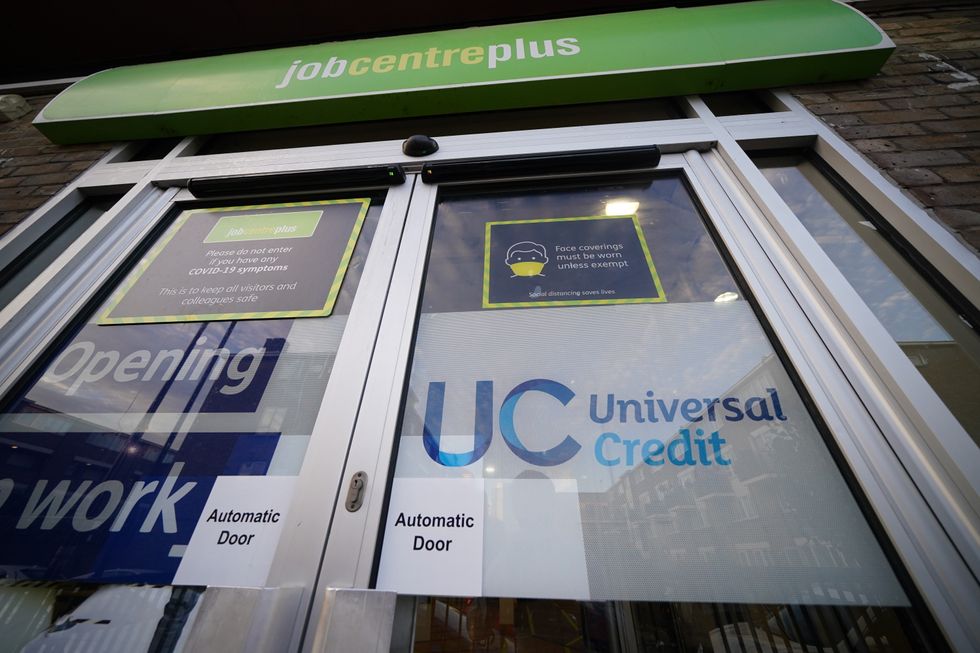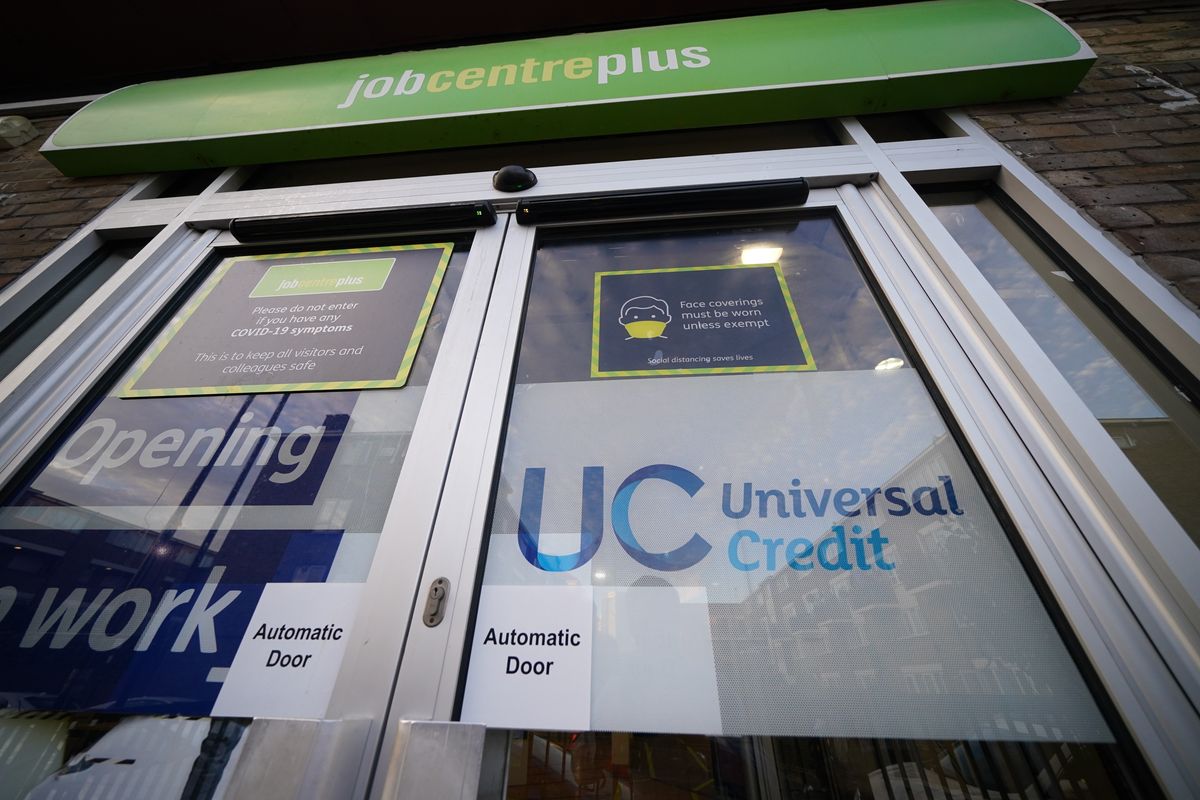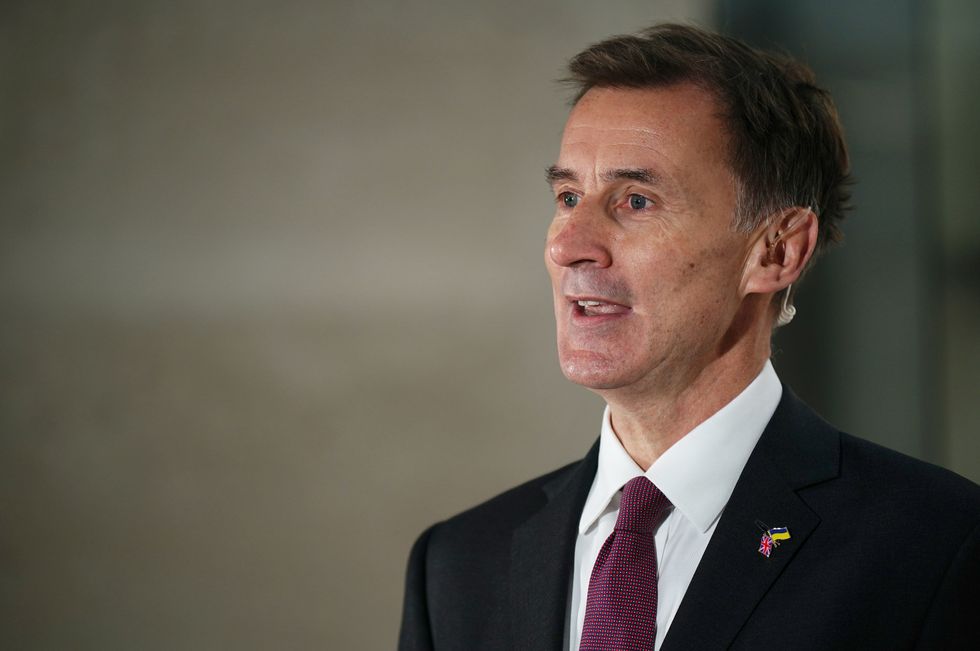Universal Credit recipients face bank accounts being checked every month in strict DWP crackdown
People on benefits such as Universal Credit reportedly face having their bank accounts checked every month to make sure they aren’t lying about their savings, under new Department for Work and Pensions (DWP) plans.The proposed reform aims to try crack down on post-covid fraud, with the Government estimating it could save the taxpayer £500million in the first five years.Currently, the DWP must individually request details of a benefit claimant’s bank account, if they suspect they are committing benefit fraud.Under this new system, banks would be required to run monthly or even weekly data checks in a bid to spot information which could suggest “risk” of fraud, The Telegraph reports.They would then need to hand the information over to the Government.Secretary of State for Work and Pensions Mel Stride is understood to see benefit fraud as "profoundly wrong".A government source told the publication: “Every pound stolen by fraudsters could be spent on our public services or on those most in need. "Mel sees it as profoundly wrong that benefit cheats aren’t playing by the rules and is determined to bring fairness for the taxpayer.”Part of the eligibility criteria states a person must have £16,000 or less in money, savings and investments in order to claim Universal Credit.If a claimant’s bank account suggests otherwise, then it could trigger a red flag and be reported to the DWP.Furthermore, an account that regularly transfers money overseas could suggest fraud, the Telegraph reports.A DWP spokesperson said: “We are already cracking down on those who try to exploit the welfare system in a push to save the taxpayer £1.3billion in the next year.LATEST DEVELOPMENTS:Universal Credit rules have changed affecting thousands of parentsLow income Britons may be eligible for £150 energy bills discount this winterUniversal Credit recipients may be able to save hundreds on broadband“We are ramping up our plans to root out fraud through our Fighting Fraud plan which will bolster the counter-fraud frontline significantly by deploying trained specialists to review millions of Universal Credit claims, among other measures.”People on Universal Credit need to meet the requirements of their claimant commitment or they could have their benefits reduced or stopped.There's no limit as to how many hours people can work, as instead, Universal Credit reduces as people earn more.For every £1 a person or their partner earns, the payment is reduced by 55p. Some may be able to earn a certain amount before the payment is reduced if they qualify for the work allowance.


People on benefits such as Universal Credit reportedly face having their bank accounts checked every month to make sure they aren’t lying about their savings, under new Department for Work and Pensions (DWP) plans.
The proposed reform aims to try crack down on post-covid fraud, with the Government estimating it could save the taxpayer £500million in the first five years.
Currently, the DWP must individually request details of a benefit claimant’s bank account, if they suspect they are committing benefit fraud.
Under this new system, banks would be required to run monthly or even weekly data checks in a bid to spot information which could suggest “risk” of fraud, The Telegraph reports.

They would then need to hand the information over to the Government.
Secretary of State for Work and Pensions Mel Stride is understood to see benefit fraud as "profoundly wrong".
A government source told the publication: “Every pound stolen by fraudsters could be spent on our public services or on those most in need.
"Mel sees it as profoundly wrong that benefit cheats aren’t playing by the rules and is determined to bring fairness for the taxpayer.”
Part of the eligibility criteria states a person must have £16,000 or less in money, savings and investments in order to claim Universal Credit.
If a claimant’s bank account suggests otherwise, then it could trigger a red flag and be reported to the DWP.
Furthermore, an account that regularly transfers money overseas could suggest fraud, the Telegraph reports.
A DWP spokesperson said: “We are already cracking down on those who try to exploit the welfare system in a push to save the taxpayer £1.3billion in the next year.
LATEST DEVELOPMENTS:
- Universal Credit rules have changed affecting thousands of parents
- Low income Britons may be eligible for £150 energy bills discount this winter
- Universal Credit recipients may be able to save hundreds on broadband
“We are ramping up our plans to root out fraud through our Fighting Fraud plan which will bolster the counter-fraud frontline significantly by deploying trained specialists to review millions of Universal Credit claims, among other measures.”
People on Universal Credit need to meet the requirements of their claimant commitment or they could have their benefits reduced or stopped.
There's no limit as to how many hours people can work, as instead, Universal Credit reduces as people earn more.
For every £1 a person or their partner earns, the payment is reduced by 55p. Some may be able to earn a certain amount before the payment is reduced if they qualify for the work allowance.







































